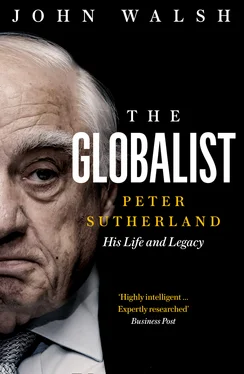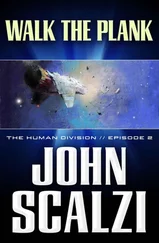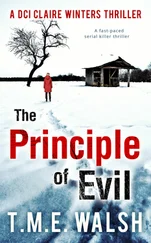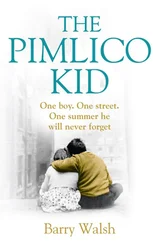Sutherland also studied economics and philosophy in his first year. Garret FitzGerald lectured him in economics, while Desmond Connell, the future archbishop of Dublin, taught him philosophy; according to Sutherland’s eldest son Shane, the experience put his father off philosophy for twenty years. John Blayney, then a barrister and a future High Court judge, taught Sutherland constitutional law.
Declan McCourt, who met Sutherland at UCD, studied law and politics before taking his Bar exams. He enjoyed the experience. ‘I found it very fulfilling. It was the Lemass era. Everything was opening up. It was great. We were in the centre of town. We made friends for life. There were plenty of colourful characters.’ Sean Lemass had taken over as Fianna Fáil leader and Taoiseach from Eamon de Valera and immediately set about liberalising the economy.
The friendship between Garrett Sheehan and Sutherland developed further at UCD. ‘He certainly didn’t develop a passion for law in UCD. We were lucky if the lecturers turned up and we didn’t mind if sometimes they didn’t. He actually did really well in his final year of law. When he went to the Bar and started practising that is when he absolutely loved it. UCD was great fun. Our social life revolved around the rugby club. The L&H would have been an obvious path, but I think we were so determined to play for UCD.’
Sheehan explains that, contrary to the image of rugby players ‘just being interested in drinking and talking about women, we actually had a lot of good discussions about politics and so on’. Sutherland’s social life revolved around Hartigans and O’Dwyers on Leeson Street and The Pembroke on Pembroke Street Lower. There were also dances, or what were known as ‘hops’. The Belvedere hop was very popular at the time. It was there that, in 1969, Sutherland met a young Spanish au pair, Maruja Cabria Valcarcel. They would marry two years later.
But Sutherland’s time in UCD was mostly taken up with rugby. He played in the Freshman team which won the thirds league and then for the second team, which won the league and cup double in the Leinster league in 1967. Their ultimate aim, says Sheehan, was to be selected for the Leinster team, for which they both had trials. ‘Peter was never far off making it.’ John O’Hagan, who is now Professor of Economics at Trinity College Dublin, was captain that year, while Sutherland took over the captaincy of the senior team for the 1967–8 academic year. O’Hagan says that the first time the team got together, Sutherland gave an ‘amazing speech. That team had been very successful the previous year. He managed expectations very well. He is the finest speaker of his generation.’
The first game of the year was the annual ‘Colours’ match against Trinity. Press clippings from the time described it as a classic. According to Sean Diffley in the Irish Press on 30 November 1967:
Beyond any doubt the 16th Annual Colours match finds an honourable place among the classic games of rugby. It had everything – drama, excitement, fantastic pace, a high degree of skill and artistry, heroic personal endeavour and, at the end, an element of pathos. On a dull, chilly afternoon, the two student teams revived the glory of rugby. There were no losers really. [For the first UCD try] Grace ran from inside his own half and then launched a huge kick that appeared to be far too much ahead. But the long-striding UCD player managed, remarkably, to field the kick and, despite the presence of several defenders, his momentum and sheer strength carried him to within sighting of the line, and a spectacular dive did the rest.
Meanwhile, according to Paul MacWeeney at the Irish Times :
Had there been All Blacks among the spectators they would have acclaimed UCD’s second try as one of their own most precious vintage – no better combined movement is likely to be seen at Lansdowne Road, or elsewhere in Ireland for that matter, this season … From a scrum well inside the UCD half, Cooke served Murphy who sent inside to Bresnihan coming up on the burst. The forwards supported on each side of the man in possession, and at top speed, Deering, Gill, Sutherland and J. O’Hagan flicked passes in and out before Deering burst over near the posts.
Despite the best efforts of UCD, however, Trinity won the game.
In January the focus shifted to the Leinster Senior Cup. Unable to compete in height or weight with the other teams, the UCD students devised a two-man lineout.[fn1] This is how the legendary Con Houlihan described it in a piece for the Irish Press newspaper titled ‘Ingenuity the key’:
The students devised a scheme among themselves to beat Wanderers, then the top scoring side in the country and coached by Ireland’s coach. But coaches, or at least most of them, follow the textbook … But they seem to forget ingenuity. And it was ingenuity which on Saturday made Wanderers wonder what had happened to them. Now as far as I know there’s no rule asking that the two opposing forwards should stand shoulder to shoulder in the line. True, we have had four on each side peeling off, but UCD on their throw-in pulled out six forwards, leaving a couple in the line-out from each side … It was ingenuity, not organised by a coach, but by young-minded chaps.
It had the desired effect. UCD upset the odds to beat a number of more established teams on the way to the Leinster Cup final. The following piece appeared in the Irish Press on 17 April 1968, just a few days before the final, which was against Old Belvedere:
UCD will probably start favourites, and deservedly so, because they were most impressive when ousting Terenure 16–8, Wanderers 11–3 and Old Wesley 11–6, en route to the final. Against Old Wesley, in particular, they gave a magnificent exhibition of fast, intelligent, open rugby. The UCD team is one of the youngest to represent the College in memory – the average age being just under 21. What they may lack in experience they make up with exceptional fitness and attacking ability. A measure of this ability is indicated by the fact that they have scored 82 tries this season, an average of more than 3.5 per match. Another interesting feature of the line-up is that six of the team are studying law whereas the medical faculty has only two representatives this year.
Alas, it was not to be. Old Belvedere beat the students with a last-minute try in what was described as a thrilling final. O’Hagan says that Tom Grace, a member of the UCD team, is still resolute in his belief that the try should have been disallowed. Sutherland blamed the referee, who had given a different interpretation of the rules from that applied in previous games on the way to the final and clamped down on the students’ ‘ingenuity’ (the two man lineout). (A full list of the team sheet for the game can be seen in Appendix 1.)
According to O’Hagan, one of the Old Belvedere trainers who went to the UCD dressing room to perform the customary commiserations suffered a heart attack, and despite the best efforts of Tom Feighery, then a medical student, to save him, he died. The post-match dinner was postponed by a week. Tony O’Reilly, who was coming to the end of his playing career, was the guest of honour. O’Reilly was capped 29 times for Ireland and played for the British and Irish Lions on two tours. He also became the chief executive of Heinz and one of Ireland’s most successful businessmen.
Tony Hickie’s son Denis played for Ireland, as did Tom Grace, Con Feighery and Shay Deering. Frank O’Driscoll got a few B caps for Ireland; although he decided to concentrate on his career in medicine, his son Brian became a rugby player of some note. Joe Cummiskey became a prominent medical consultant and a leading campaigner against doping in sports until his death in April 2018. Fergus Slattery, meanwhile, became one of the legends of the game, touring with the British Lions as well as winning numerous caps for his country.
Читать дальше












